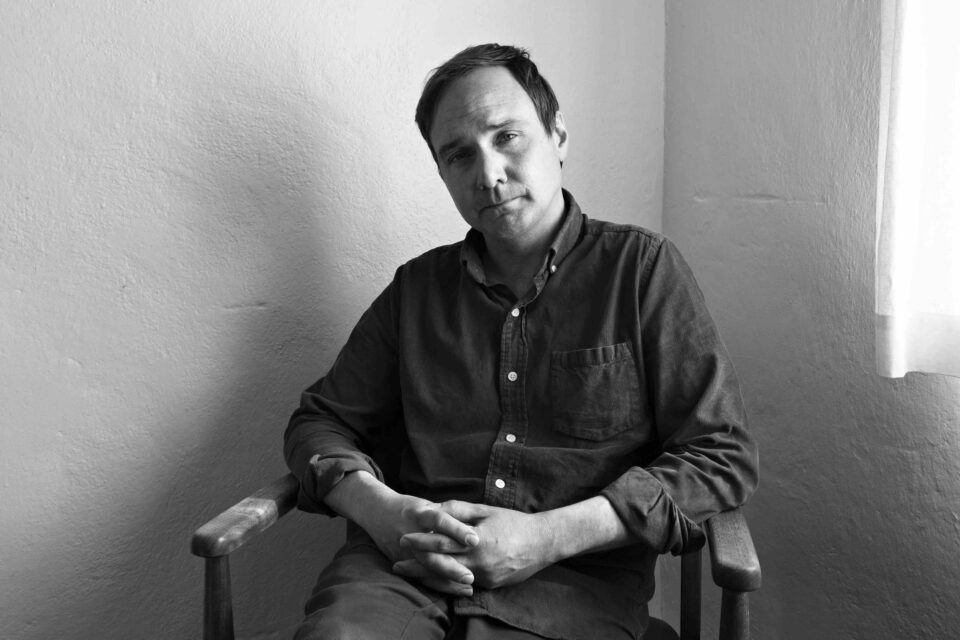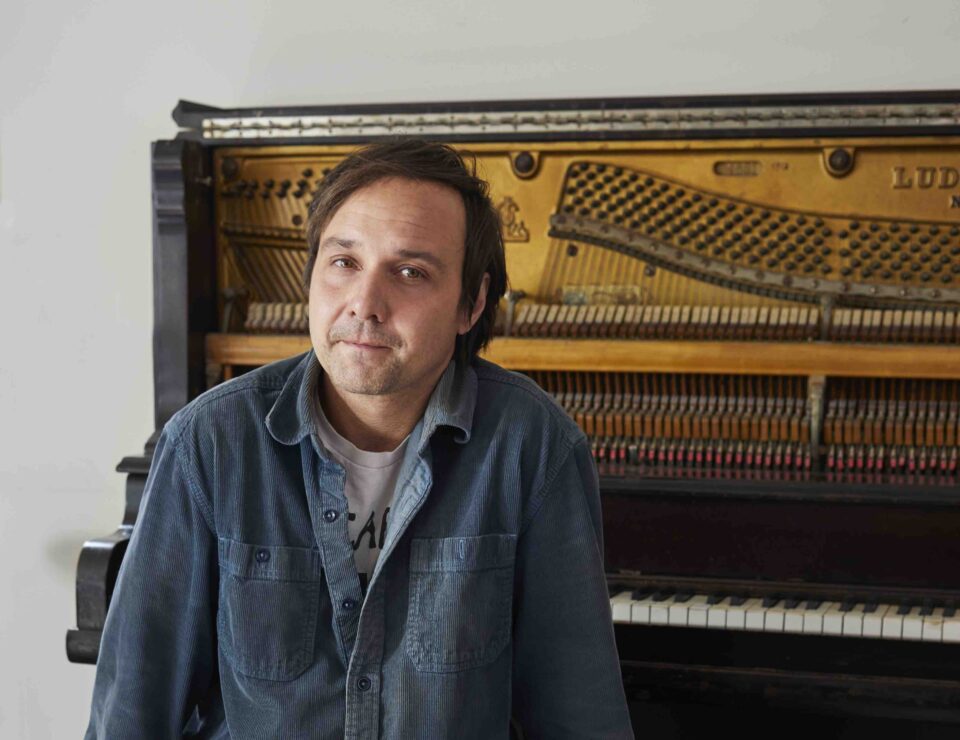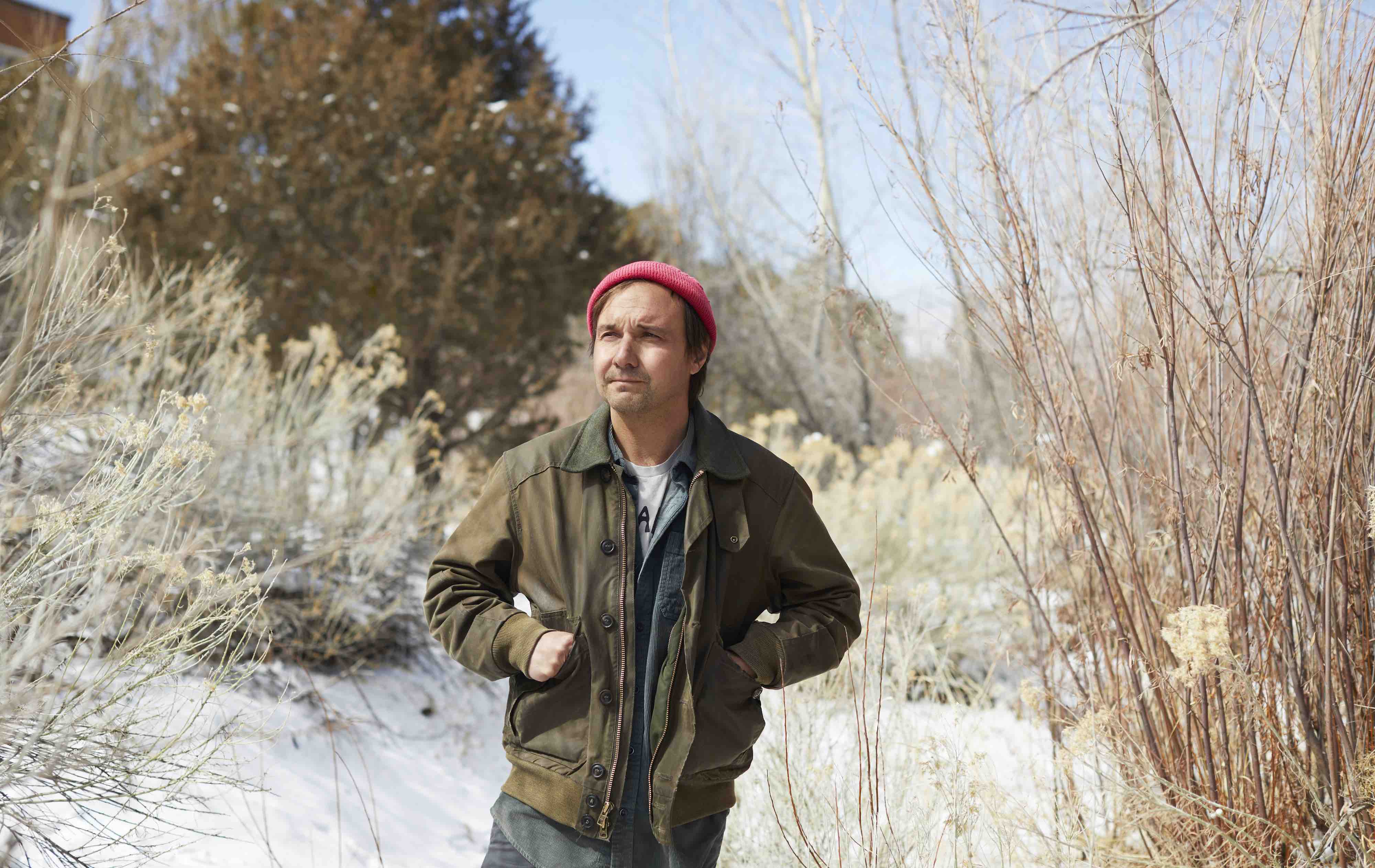As a longtime member and co-lead vocalist of Grizzly Bear, it’s a bit of a shock to find that Daniel Rossen is arrestingly humble. Though, given his life trajectory, perhaps it makes sense. He left Brooklyn nearly a decade ago for rural Upstate New York. Later on, he and his wife moved to New Mexico. It feels like Rossen’s rustic surroundings are embedded into his being. He’s soft-spoken and has the sense of someone who cherishes small pleasures—like the cool air after a storm, or the silence of a corner room. In conversation, it’s hard to detect the scent of a musician who’s toured the world several times over.
It’s also hard to believe, for all his talents and years in the business, that Rossen hasn’t released an album of his own until now. Aside from some short recordings, Rossen’s musical work has been consistently tied to Grizzly Bear or his duo with Fred Nicolaus, Department of Eagles. After years of toiling and tinkering with a bevy of acoustic instruments, he’s finally releasing his debut full-length, You Belong There, into the world. It’s full of lush, bucolic imagery that’s anchored by dramatic storytelling and Rossen’s boyish, seasoned vocals.
To many, Rossen’s singing will feel familiar and friendly. He joined Grizzly Bear prior to recording their 2006 album Yellow House. You Belong There evokes that record’s homespun, countryside beauty, with Rossen’s experimental spirit imbued into each song. For both longtime fans and newcomers, though, the album will feel like finding your way home.
Rossen chatted with us over the phone from his home in New Mexico about life away from big cities, overcoming his artistic insecurities, and the current state of Grizzly Bear.
You and your wife moved to Santa Fe a few years ago. How has living there influenced the music on the new album?
I don’t think there’s any direct connection, but it’s factored into a lyric or two from the New Mexico setting. I wrote about aspects of my family history, always feeling out of place. New Mexico is kind of one of those destinations where over time, you can drift here if you don’t know where you’re supposed to go. It’s a mysterious part of the world. There’s something I related to there.
“I feel very disconnected from any discourse going on in the music world now, which is probably not good on a certain level. But at the same time I feel like it’s allowed me to develop my own world.”
As someone who was born in LA and lived in New York City, it seems like you’ve grown to consciously reject metropolitan ways of living. Has not living in a big city made your life as a musician easier or harder?
Probably harder. I think there’s a misconception about being an artist out in your country place and having the freedom to work. That’s definitely not how it pans out. I think it’s harder to stay focused. I’ve never been a particularly careerist person, honestly. As soon as I moved out there, I think that unraveled even further, that drive to actually do something with the music I make.
But it’s also helpful because you can really define your own context for your work. I feel very disconnected from any discourse going on in the music world now, which is probably not good on a certain level. But at the same time I feel like it’s allowed me to develop my own world. The music I make exists in the context of my life, my family, the places I live. That’s very important to me, to have that personal context for my work at this point in my life. But it’s also not good at all for developing a professional life in music [laughs]. I’m excited about this tour I’m playing alone, and I really enjoy doing that. But at the same time, if I lived in LA or New York I could probably put a band together. I actually can’t do it out here. It’s impossible.

photo by Amelia Bauer
You’ve said before that the creative spark can sometimes diminish with age. Has becoming a father ignited that spark in you in any new or surprising ways?
I think it’s possible. When my daughter was born, that was when I really dug in with more intention as far as finishing this [album]. I’ve been trying to finish it for years. There’s something about having a kid, and the future, and what our lives are going to be like. I also thought sometimes with this record, “What would it be like to talk with whoever my daughter is when she’s older?” I’d like to make something that I can feel proud of and I can share with her down the line.
“There are strange songs on this record I don’t think I would have been able to get away with unless I did them alone.”
How different was the process of making an entire album’s worth of material that’s yours and not connected to a band? Did you find it liberating?
A lot of the time it was just confounding and difficult. It was helpful and interesting to be able to pursue whatever strange idea all the way to the end. There are strange songs on this record I don’t think I would have been able to get away with unless I did them alone. When I was younger I had more of a romance for writing alone since I was always in a band and it seemed so appealing. But now that I’m actually there, it’s not so appealing. At the same time, it is where I’m at, and it feels appropriate to be making a solo record, even if it does feel particularly challenging. As you get older, you’re always harder on yourself—or at least I feel that way about making music. Your standards change, you don’t have as much patience for anything that feels like bullshit, even in your own writing. It gets harder and harder to get past that filter of self-criticism.
You played several instruments you weren’t familiar with on the album, like woodwinds and upright bass. What was the process like of absorbing them into your catalog?
It was kind of just a fun exercise. Such a different experience of music and melody on other instruments. The way it feels to express something on a clarinet or an upright bass versus a guitar is going to sound different. So I think it had some influence on some of the melodic writing on the album. I’ve been enjoying building out my own vocabulary of acoustic instruments I can work with now in my studio. I always imagined when I was younger that I would be an old man surrounded by synthesizers, but instead I’ve gone the complete opposite direction. I had a real fixation with this record with doing things by hand and the old fashioned way.
Do you still have any interest in synthesizers? I don’t know how much of it was your input, but the last Grizzly Bear album was definitely the most synth-heavy album you guys made.
That was probably partially why I ended up making a record like this [laughs]. I was trying to do the opposite of that. I don’t have an ideological opposition to it, but it’s kind of like the experience of playing it for me, for the most part. As someone who’s not very well-versed in [electronic music], it doesn’t feel very gratifying. There’s a certain kind of physical connection to bowing an upright bass or playing a reed. Same thing with playing guitar—it’s very tactile and involves your whole body. I love the feeling of having the instrument as an extension of yourself. I know there are people who love all manner of synthesizers, and it can be incredibly expressive. It’s a whole world I have total respect for. It’s just not how my brain tends to think.
“I always imagined when I was younger that I would be an old man surrounded by synthesizers, but instead I’ve gone the complete opposite direction. I had a real fixation with this record with doing things by hand and the old fashioned way.”
Ed Droste is no longer a part of Grizzly Bear, and it’s been a while since the last album. From your perspective, what do you see as the current state of the band?
Well, there’s no official line on that. Ed went to school, he needed to take some time away. The last tours were pretty hard on everybody, but I think it was particularly hard on him. I have a lot of respect for the fact that he’s pursuing something else with his life. I think he needed to do it, and that’s great. But we’re still in contact. I still talk with everyone in the band. I don’t necessarily know what the future holds and I certainly don’t want to make any grand statement that it’s over. I don’t see why that’s necessarily true.

photo by Byron Flesher
But yeah, it depends a little bit on what Ed wants to do and whatever else is going on with our lives. At the same time, I do feel like after a good 14 years or so of active time, people grow up and change. Grizzly Bear in particular is very much based on the chemistry between us, and I think by the end we were struggling to find that chemistry in a way. Now we’re off living our lives and we’re all around the age of 40. Some of us have families, and there’s a natural progression there. But I hope that one day we could do another record, that would be great.
You’ve said that a lot of this album is about restlessness, about “a homesickness which home can’t cure.” Do you feel any more at peace these days?
I think that’s probably a lifelong feeling I’ve had. I moved around a lot as a kid, always living out of a duffel bag. I very quickly found myself in a touring band once again living out of a duffel bag, sleeping on the floor of a van. The one period of my life where I really felt like I had found a place I connected to was when we were living in that rural part of Upstate New York. I love where we are now, but I think that’s a lot of this record—being away from that place. A sense of home that I miss. But I also love my life here and I love my family and that’s just life. I feel pretty at peace with where things are. But I don’t think that sense of restlessness is something that ever really goes away [laughs]. FL









